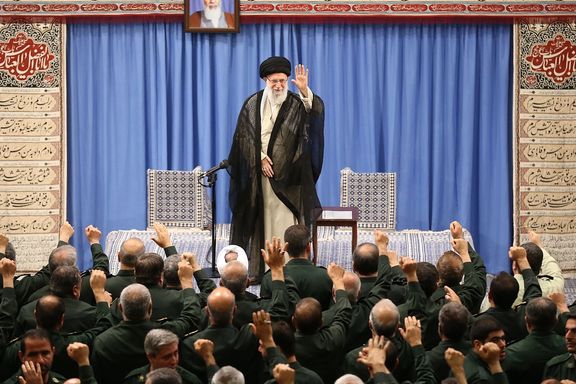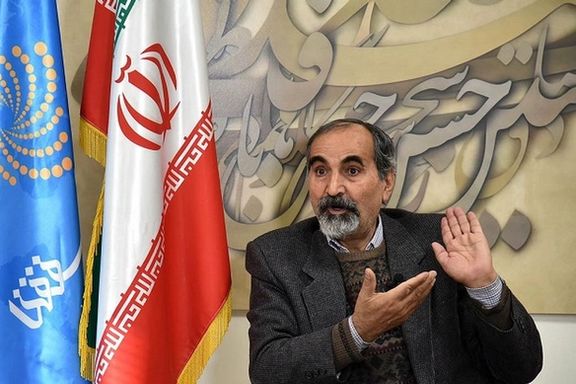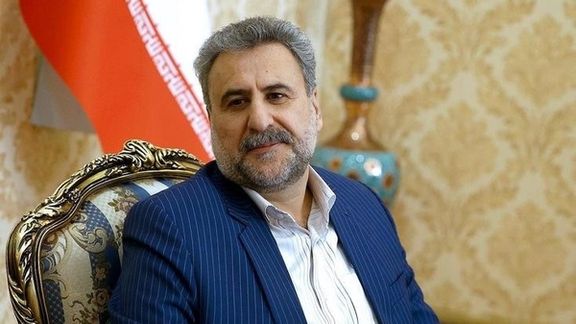Pundits In Iran Urge Regime To Listen To People, Shun Extremism

Four months into anti-regime unrest in Iran, politicians, sociologists and economists are still trying to make sense of what is going on and where Iran is headed.

Four months into anti-regime unrest in Iran, politicians, sociologists and economists are still trying to make sense of what is going on and where Iran is headed.
Iranian sociologist Taghi Azad Armaki told Etemad Online on December 18 that Iranians want the Islamic Republic to change its views and rhetoric. At the same time, the regime's official project is all about its survival.
Armaki added that regime insiders' exit strategy from the current crisis is merely eliminating all of its critics and those who protest against its performance. They call the critics "traitors" and label protesters as "rioters".
The political system is too old and outdated, the sociologist argued. It is clear that a new society has emerged which is pluralist, has many different demands and criticizes the outdated system. But the Islamic Republic wishes to change this new society and force it to become compatible with the old system. This is what has created the current political crisis.
Armaki believes that the new society does not accept this and naturally, the government's policy is likely to lead to an impasse. "The new generation of Iranians wants a civil society, civil rights, government accountability, as well as economic progress and welfare, but all government policies are only meant to ensure its survival.

Meanwhile, former Roads Minister Ahmad Khorram, a reformist figure, believes that the current crisis is the outcome of concentrating all political and economic powers in the hands of one political faction (hardliners). Khorram told Rouydad24 that concentration of power leads to misery and Iranians do not deserve all the problems they are facing.
Khorram added that even officials have said that the public's trust in the government has been declining. This, he said, plunges the society into despair and will lead to violence, which is certainly not a cure for the Iranian society's problems.
Based on some research, trust in the government has dropped from 98 percent to around 20 percent since the inception of the Islamic Republic, he said. This is mainly because the government is against civil society and civil institutions such as NGOs, political parties and so on.

In another development, the former chief of the Iranian parliament's national security and foreign policy committee Heshmatollah Falahatpisheh in an interview criticized the government for trying to solve its problems with protesters unilaterally, in an extremist way and by shedding blood. He added that some of the individuals who pour gasoline on the fire of protests are the members of the extremist group Hojjatiyeh. He reiterated that this group's policies can never solve the country's problems. They easily talk about execution and promote it as a remedy for Iran's current problems. He was probably referring to individuals such as hardliner lawmaker Mostafa Mirsalim who has said detained protesters should be executed within five to ten days.
Falahatpisheh said the members of the extremist group have crept into the government. The group has always been a hardliner proponent of compulsory hijab and confiscation of assets belonging to religious minorities such as the Baha’is since the 1970s. Falahatpisheh said that opposition to blue jeans is part of the group's teachings. He explained that after the 1979 revolution, the Islamic government has been trying to isolate this group but currently they have become powerful again.
Falahatpisheh added that this group has been taking the lead in nearly all the attacks on foreign embassies in Iran.
A current member of parliament’s national security and foreign policy, Jalil Rahimabadi has also criticized the government for not listening to the people. He reiterated that no political system will be weakened by accepting people's demands. Rahimabadi pointed out that some elements in the government wrongly believe that if they accept some of the demands of the protesters, this will lead to further unrest. "I think it is wrong to believe that listening to protesters means a retreat on the part of the government."